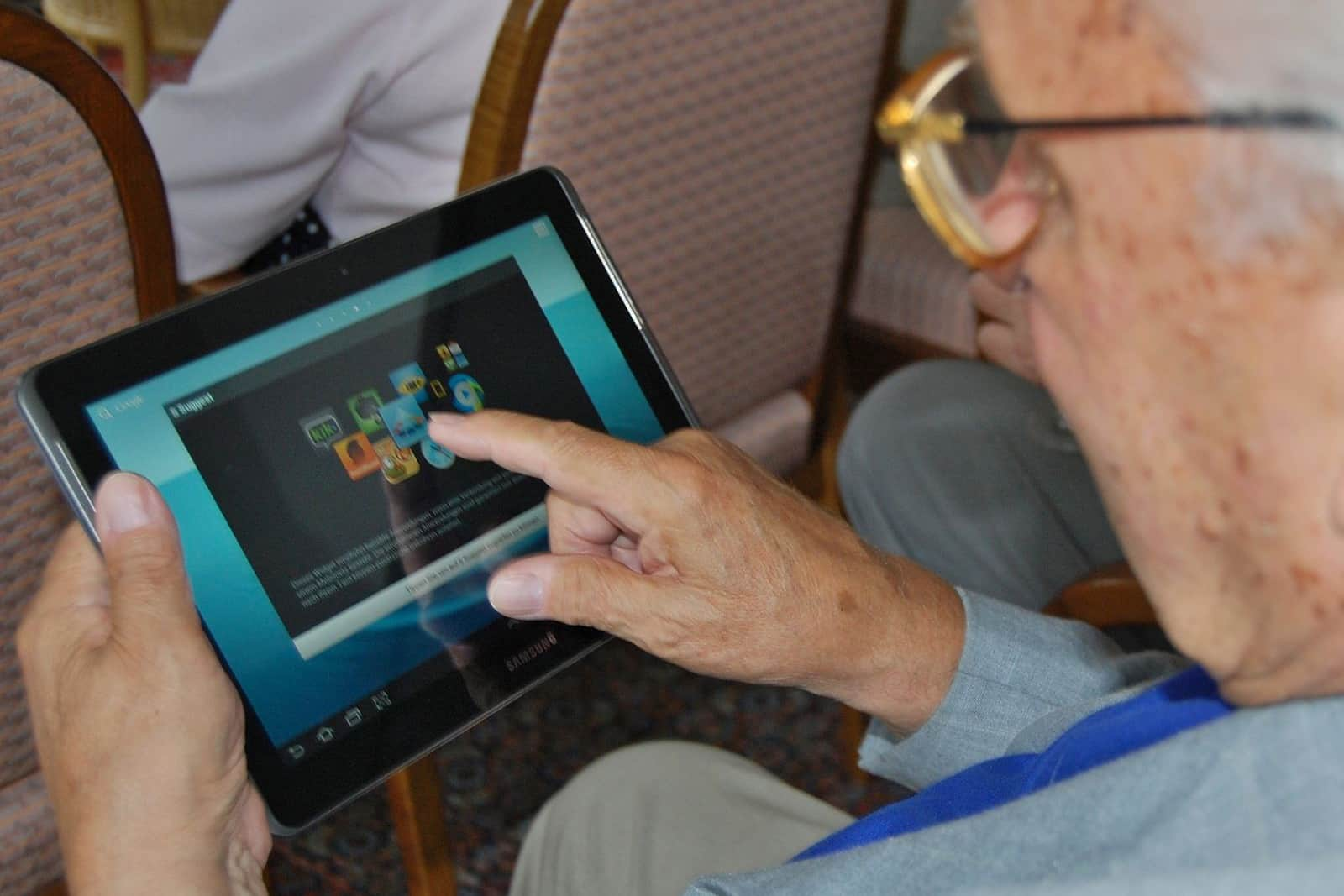As we age, our ability to learn and retain new information diminishes. So much so, that by the time we reach our 80s and 90s, a skill picked up easily by a toddler – like tapping and swiping on a mobile phone - can seem too daunting to undertake. Frustrated and defeated, many older adults simply give up trying to learn new skills.
That’s where Shelia Cotten, Ph.D. steps in. A professor in the Department of Media and Information in the College of Communication Arts and Sciences (ComArtSci), Cotten researches technology use across the life course. Her goal is to improve the lives of older adults by closing the digital divide and helping them learn to use technologies to improve their lives.
Training Older Adults
In a recent study, Cotten and her team spent 5-years working with 19 different assisted and independent living facilities training older adults to use computers and the internet. The training lasted for 8-weeks in each facility, with 2 training sessions per week plus an additional office hours session.
The team started with the basics – from turning on a computer, to conducting an internet search, to sending an email.
“A lot of times, older adults have had no experience with computers in their lives,” said Cotten. “So, we have to start very basic. We started early teaching them to use email because findings from our prior work showed that older adults really enjoy that one-to-one communication/interaction.”
The participants also learned how to search for health information, and to critically evaluate the information they found.
“Because a lot of older adults have more health problems than younger aged groups [the question is] ‘How do you find information on the latest prescription that you’ve been given?’ and ‘Is there a conflict with some other medicine that you’re taking?’ We try to help them to be more critical consumers of information,” said Cotten.
Improving Quality of Life
The team also observed the mental health and quality of life benefits the residents received while working with the research team, including impacts on depression, isolation and loneliness.
“A lot of times as people age into their 80s or 90s, their partners or spouses have died, their children may be living far away, their health tends to decline… the combination of those factors
leads them to be more isolated, have higher rates of loneliness, have higher depression levels as they move into older adulthood,” Cotten told us.
According to Cotten, more opportunities for interaction and exchange of social support often lead to more positive outcomes for older adults. Because of that, Cotten focused her study on training older adults in a face-to-face environment, teaching them ways to use technology to connect with their present as well as their past.
“We found the interaction is very beneficial for older adults in general,” said Cotten. “But, over and above [we found] that the training and technology usage had positive effects. Teaching older adults how to use computers and the internet had positive impacts on their quality of life.”
From finding their childhood homes using Google Street View, to watching their favorite classic television shows or listening to music from earlier generations on Hulu and YouTube, the participants were able to see that many of their memories still live on.
Findings of the Study
At the end of the 5-year study, Cotten and her team found that their work was a success.
“We saw very positive effects in terms of teaching older adults in these communities to cross the digital divide and use computers and the internet successfully,” Cotten recalled. “They had reduced loneliness, better social integration, and lower depression. And many of the positive results tended to persist over time.”
The group even wrote a book on designing technology training programs for older adults in continuing care retirement communities (CCRCs). The book is intended to help additional facilities work with their residents in the future, continuing to improve their quality of life.
Cotten said the team wrote the book “To provide the latest research- and design-based recommendations for how to design and implement technology training programs for older adults in CCRCs. Our approach concentrates on providing useful best practices for CCRC owners, CEOs and activity directors, as well as practitioners and system designers working with older adults to enhance their quality of life and educators studying older adults. Although the guidelines are couched in the context of CCRCs, they will have broader-based implications for training older adults to use computers, tablets and other technologies.”
More to Come
Cotten has dedicated her career to exploring innovative ways to use technology to improve people’s lives and just finished her fourth year at MSU. This summer, she is conducting a large-scale survey of older adults across the U.S. about different aspects of technology, including digital assistance and even autonomous vehicles.
“You know Alexa? And Siri? We want to get their perspectives on these technologies. There isn’t a lot known about these new technologies coming out and older adults’ perceptions of them and how they might use them to improve their quality of life,” said Cotten. “Autonomous vehicles have such a huge potential for older adults who have mobility problems and can’t drive anymore… Using autonomous vehicles has the potential to significantly impact their independence and have positive impacts on their quality of life.”
In addition to research, Cotten also teaches classes in ComArtSci, is the Director for the Sparrow/MSU Center for Innovation and Research, the Director of Trifecta and was recently promoted to MSU Foundation Professor.
“I love being in the Department of Media and Information and being at MSU; my whole department is focused on how can we use media and technology to improve people’s lives and the larger world. It’s a great opportunity to be in a very interdisciplinary department and have great collaborators who are all interested in different aspects of technology, media, or information. I love it here,” said Cotten.
By Nikki W. O’Meara
